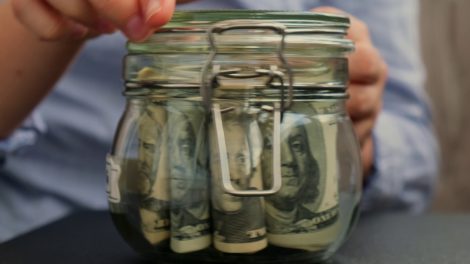How to Avoid Debt After Losing Your Job
:
Filed under: Money Management
 Losing your job can be an overwhelming experience, and managing finances during such a time is crucial. The last thing you want is to fall into debt while you’re figuring out your next steps. Fortunately, there are proactive steps you can take to avoid accumulating debt during a period of unemployment. Here’s a guide on how to avoid debt after losing your job:
Losing your job can be an overwhelming experience, and managing finances during such a time is crucial. The last thing you want is to fall into debt while you’re figuring out your next steps. Fortunately, there are proactive steps you can take to avoid accumulating debt during a period of unemployment. Here’s a guide on how to avoid debt after losing your job:
- Create a Detailed Budget
The first thing you need to do is take stock of your current financial situation. This includes reviewing your savings, monthly expenses, and any available income sources, such as unemployment benefits or severance pay.
- Track your spending: List all of your essential and non-essential expenses, then prioritize what is absolutely necessary (rent, utilities, groceries, insurance, etc.).
- Cut back on unnecessary spending: Look for areas to reduce your costs, such as dining out, subscription services, or expensive entertainment.
A budget will help you stay in control of your finances and prevent overspending.
- Prioritize Essential Bills
When you lose your job, the next step is to identify which bills are essential and which can be delayed or deferred.
- Housing: If you can’t pay your rent or mortgage, contact your landlord or lender immediately to discuss payment deferments or plans. Many mortgage companies offer forbearance options in case of financial hardship.
- Utilities and insurance: Call your utility providers to explain your situation and see if they offer deferred payments or extended deadlines. For health insurance, check if you’re eligible for COBRA or explore government programs such as Medicaid.
Many companies are willing to work with you if you reach out early rather than letting payments fall behind.
- Leverage Unemployment Benefits and Assistance Programs
Make sure you apply for unemployment benefits right away, as they can provide a financial cushion while you’re looking for another job. These benefits may not fully replace your lost income, but they can help cover your essential expenses.
Additionally, research other government assistance programs such as food stamps (SNAP), healthcare subsidies, or temporary housing assistance. Many non-profit organizations also provide resources for individuals facing job loss.
- Avoid Using Credit Cards for Daily Expenses
It’s easy to turn to credit cards when you’re out of work, but doing so can quickly lead to mounting debt. The interest on credit cards can accumulate fast, making it harder to recover once you’re back on your feet.
- Use credit cards sparingly: If you do use them, prioritize essential purchases like groceries or bills. Avoid unnecessary splurging.
- Pay down existing debt: If possible, make minimum payments on existing credit card balances to avoid late fees and higher interest rates.
- Consider Alternative Solutions
If you’re unable to meet your financial obligations, don’t ignore your creditors. Many lenders and service providers are understanding of your situation and might offer deferred payments or hardship programs.
- Contact creditors: Be honest and upfront about your situation. You might be able to negotiate lower payments, deferred interest, or extensions.
- Consult with a Bankruptcy Attorney: The sooner you communicate with creditors, the more likely they are to offer leniency or financial relief.
Losing your job is undoubtedly challenging, but it doesn’t have to result in financial ruin. By staying proactive, cutting back on unnecessary expenses, seeking temporary income sources, and prioritizing essential bills, you can avoid accumulating debt. Remember, this is a temporary situation, and with careful planning and persistence, you’ll be able to navigate this difficult time without falling into financial hardship.
If you are behind on your payments, unable to make your debt payments or are at risk of losing your home to foreclosure, contact our team of Dallas bankruptcy lawyers. We can review your options and help you make the right choice for navigating this difficult time.







